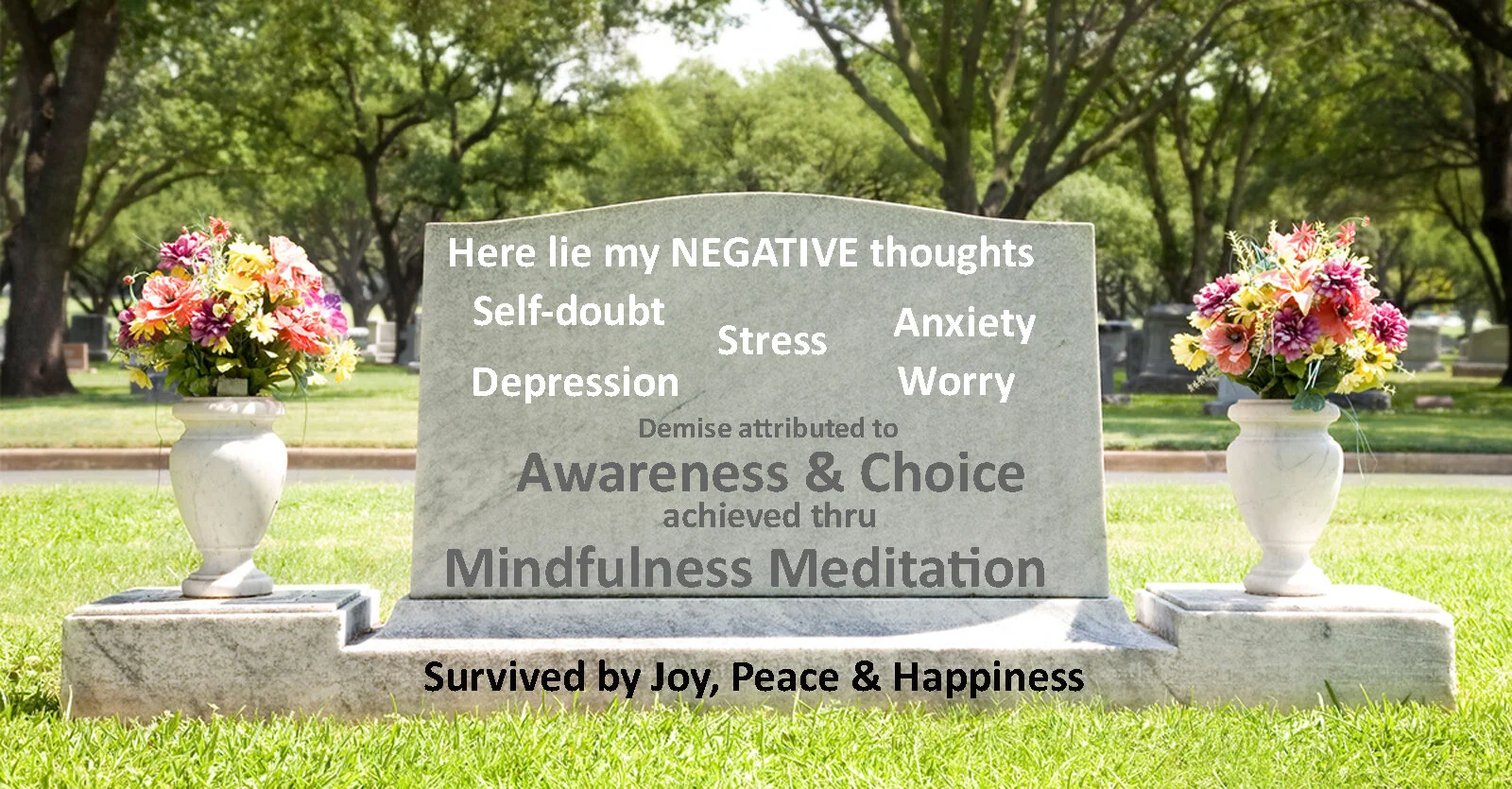And then just “lay it to rest” or as the Beatles sing, “Let it be”!
If your days are filled with emotional perpetrators such as stress or anxiety, depression or low self-esteem, worry or other such suffering, then blame your thoughts. It’s never the situation we are in nor can we blame others for our state of mind. These feelings emanate from our very own thoughts. Ironically and in reality, about 80%-90% of our thoughts are not our own. We weren’t born with our negative thoughts. We acquired them over our lifetime.
The majority of our thoughts are hand-me-downs. They come from grandparents, parents, teachers, friends or they are shaped by our past experiences and how we may have reacted to those experiences at any given give time in our life. Just because we have a thought, it “ain’t necessarily” true!
Thoughts precede feelings. Often the thoughts are conscious thoughts and sometimes, they are so entrenched in our belief system, they surface automatically (unconsciously). Every time we have the same negative thought over and over again, we reinforce that thought via neuro connections in our brain.
“According to the National Science Foundation, an average person has about 12,000 to 60,000 thoughts per day. Of those, 80% are negative and 95% are repetitive thoughts. If we repeat those negative thoughts, we think negative way more than we think positive thoughts.”
It’s our human nature to think……to have thoughts continuously race through our minds. When we react to our re-occurring “baseless” and virtually untrue negative and judgmental thoughts and beliefs about ourselves (or become irritated with others), we become stressed, worried, depressed, anxious, etc . When our thoughts stir such emotions day in and day out, our body suffers the consequences with hypertension, head and stomach aches as well as a weakened immune system which can lead to frequent colds, flu symptoms, skin rashes, arthritis, and even IBS to name just a few . When we put our body at dis-ease often enough, we become more susceptible to even more serious illnesses.
That’s where Mindfulness Meditation comes to the rescue. The goal of this practice is not to stop or escape our thoughts; but rather, to just acknowledge them and to “let them be” by turning our focus towards our breath. When we can become an observer of our thoughts without judging them, we eventually learn to lessen our reactions to them; thereby, eliminating all those negative emotions that override our ability to live life to the fullest. When we learn this, we become kinder to ourselves and to others. We learn to live in the present moment minus regrets and judgements formed in the past and the anxiety or worries about the future. Mindfulness teaches us to respond rather than react to our thoughts. It teaches us an acute awareness of our thoughts. It is only through the awareness of our thoughts that we can choose how we wish to be there for ourselves and others. It’s also how we can improve our brain function and our physical well-being. Awareness is the catalyst to change, growth and insight.
Rather than being your thoughts and emotions, be the awareness behind them. Eckhart Tolle

